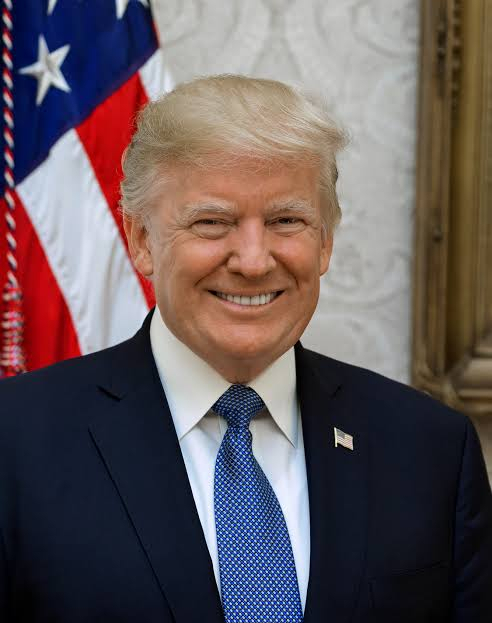US President Donald Trump on Friday said he has "the legal right" to interfere in criminal cases, capping a tumultuous week that raised questions about whether he is eroding the independence of the US legal system.
Trump's criticism of the judge, jury and prosecutors in the criminal case of his longtime adviser Roger Stone prompted an unusual rebuke from Attorney General William Barr, his top law enforcement official, and spurred new demands for investigation from the Democrats who unsuccessfully tried to remove the Republican president from office.
It was the latest in a string of aggressive actions by Trump since the Republican-controlled Senate acquitted him of impeachment charges last week.

Trump fired officials
Trump has transferred or fired government officials who testified about his efforts to pressure Ukraine to investigate a potential political rival in November's presidential election.
He also dropped his nomination of former US Attorney Jessie Liu, who oversaw the Stone case, for another government post in the Treasury Department.
Sources close to the president said Trump has a greater sense of freedom following his Senate acquittal.
"You have to remember, he's not 'of' government. He gets frustrated when people tell him something can't get done. He's like: 'Just get it done,'" said one administration official who spoke on condition of anonymity.
Barr has privately told Trump for "some time" that his public statements were making it hard for him to run the Justice Department effectively, according to a source familiar with the matter.
He went public on Thursday, telling ABC News that Trump's attacks made it "impossible" for him to do his job. "It's time to stop the tweeting," he said.
Trump "has never asked me to do anything in a criminal case," Barr added.
The president responded on Friday morning. "This doesn't mean that I do not have, as President, the legal right to do so, I do, but I have so far chosen not to!" he wrote on Twitter.
Administration officials said Barr did not clear his remarks with Trump. They said Trump shrugged them off when told about them by aides.
'FARTHER THAN NIXON'
Trump's insistence that he has the right to interfere in criminal cases runs counter to the practice of previous US presidents, who have generally kept an arms-length distance from the Justice Department since the Watergate scandal of the 1970s that led then-President Richard Nixon to resign from office.
"Trump goes farther than Nixon, though. He's proud to openly corrupt the justice system and use it to target his enemies and protect his friends," Democratic Senator Ron Wyden said in a prepared statement.
Stone case
Trump's running commentary on the Stone case calls into question whether Barr can oversee US law enforcement in an independent manner, said Bruce Green, a former federal prosecutor who now teaches at Fordham School of Law.
"Given the sequence of events, it's doubtful that Barr's effort to distance himself from the president's tweets will be enough of a cure," Green told Reuters.
Barr has been an outspoken defender of the president and has aggressively sought to implement his agenda, frequently drawing charges from Democrats and former Justice Department officials that he is politicizing the rule of law.
The Justice Department on Tuesday asked for a lighter sentence for Stone, scaling back prosecutors' initial request that he serve 7 to 9 years after being found guilty of lying to Congress, obstruction and witness tampering. That prompted all four prosecutors to resign from the case in apparent protest.
On Friday, Barr appointed an outside prosecutor to review the criminal case against Michael Flynn, another former Trump adviser who awaits sentencing after pleading guilty to lying to the FBI.
Barr has also ordered an investigation into the Obama administration's activities in 2016 as it examined possible ties between Moscow and the Trump campaign, and has gone after states and cities that have adopted "sanctuary" policies to protect unauthorized immigrants from deportation.
Barr's Justice Department sought to quash the whistleblower complaint about Trump's effort to pressure Ukraine to investigate former Democratic Vice President Joe Biden, which led to the president's impeachment.
He confirmed earlier this week that the department is taking evidence from Trump's personal lawyer, Rudy Giuliani, who has been seeking information in Ukraine about Biden.
Democrats who control the House of Representatives called for Barr to testify next month over the matter and asked the department's watchdog to investigate but have little other recourse.
Like Barr, Trump's Republican allies in Congress have said they wish he would be less outspoken on Twitter, even as they have consistently defended his actions.
The Senate on Thursday sought to impose some restrictions on Trump, voting to limit his ability to wage war with Iran and questioning whether one of his nominees is qualified to serve on the board of the Federal Reserve.
Meanwhile, the president has moved to rebuild his staff with those he sees as loyalists, including former communication director Hope Hicks, who worked closely with Trump in his business before serving as his 2016 campaign press secretary.
He also rehired his former personal assistant Johnny McEntee to lead his personnel office, who sources say will be tasked with ensuring that new hires are loyal to the president.
Trump is about to launch a week of re-election activities, starting with a fundraising dinner on Saturday at his Mar-a-Lago resort in Florida.
On Sunday, he will seek to appeal to blue-collar voters by attending the Daytona 500 NASCAR race, where he will be named the grand marshal, the first president to have that distinction.
On Tuesday he goes on a three-day swing through California, Nevada, Arizona and Colorado.









